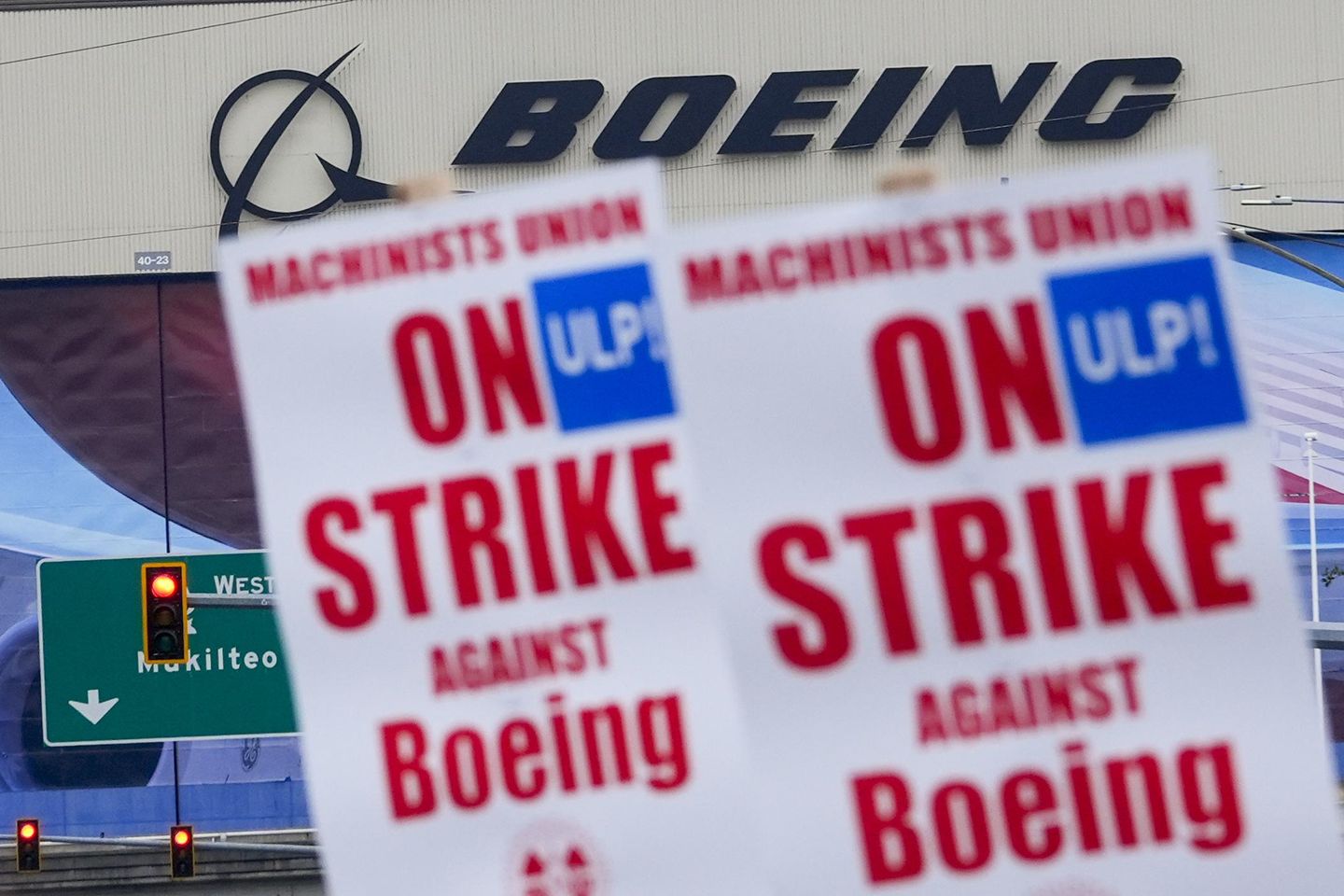The Boeing Strike: A Battle of Wills and Negotiations
Boeing, one of the largest aerospace companies in the world, has been embroiled in a contract dispute with its striking union for weeks. The negotiations reached a breaking point on Wednesday when both parties failed to reach an agreement on key issues, leading to a stalemate that has left thousands of workers on the picket lines and the company’s production lines at a standstill.
The strike, which began several weeks ago, has been marked by tension and frustration on both sides. Workers, represented by the International Association of Machinists and Aerospace Workers (IAM), are demanding higher wages, better benefits, and improved working conditions. Boeing, on the other hand, is pushing for cost-cutting measures and increased productivity in order to remain competitive in the aerospace industry.
The negotiations seemed promising at first, with both parties expressing a willingness to compromise in order to reach a fair and equitable agreement. However, as the weeks went by, it became clear that there were deep-seated disagreements on key issues that threatened to derail the talks.
One of the main sticking points in the negotiations was wages. Workers at Boeing have long complained that their wages are not keeping pace with the rising cost of living, and they were demanding a significant pay increase in order to make ends meet. Boeing, however, argued that the company’s financial situation was precarious and that it could not afford to increase wages without sacrificing other benefits or laying off employees.
Another major point of contention was working conditions. Workers at Boeing have raised concerns about safety, long hours, and job security, and they were demanding improvements in these areas in order to feel valued and respected by the company. Boeing, on the other hand, was reluctant to make any significant changes to its operations, citing the need to remain competitive in a global market.
As the negotiations dragged on, tensions between the two sides began to escalate. Workers at Boeing went on strike, picketing outside the company’s facilities and disrupting production. Boeing, in turn, threatened to replace the striking workers with temporary staff in order to keep its operations running smoothly.
The situation came to a head on Wednesday when both parties met for a final round of negotiations. Despite hours of talks and last-ditch efforts to find common ground, the two sides were unable to reach an agreement on key issues, leading to a breakdown in the negotiations and a declaration of an impasse.
The fallout from the failed negotiations has been significant. Thousands of workers at Boeing are now out of work, with no clear end in sight to the strike. The company’s production lines have ground to a halt, leaving customers and suppliers in limbo. And the future of Boeing’s operations and its place in the aerospace industry are now uncertain.
In the wake of the strike, both Boeing and the IAM have vowed to continue negotiating in order to reach a resolution. However, with tensions running high and both sides digging in their heels, it is unclear when or if an agreement will be reached.
The Boeing strike has underscored the challenges of labor relations in the modern economy. As companies strive to remain competitive in a global market, workers are often left feeling undervalued and underpaid. The tensions between labor and management that have been on display at Boeing are not unique to the aerospace industry, but are emblematic of a larger struggle for fairness and equity in the workplace.
As the strike at Boeing continues, both workers and management are facing an uncertain future. The stakes are high for both sides, with the company’s reputation and profitability on the line, and the livelihoods of thousands of workers hanging in the balance.
In the end, the Boeing strike is a cautionary tale of the challenges of negotiating in a complex and competitive industry. Both sides must find a way to bridge their differences and reach a compromise that is fair and equitable for all parties involved. Until then, the strike at Boeing will continue to serve as a stark reminder of the power of collective action and the importance of standing up for one’s rights in the face of adversity.









